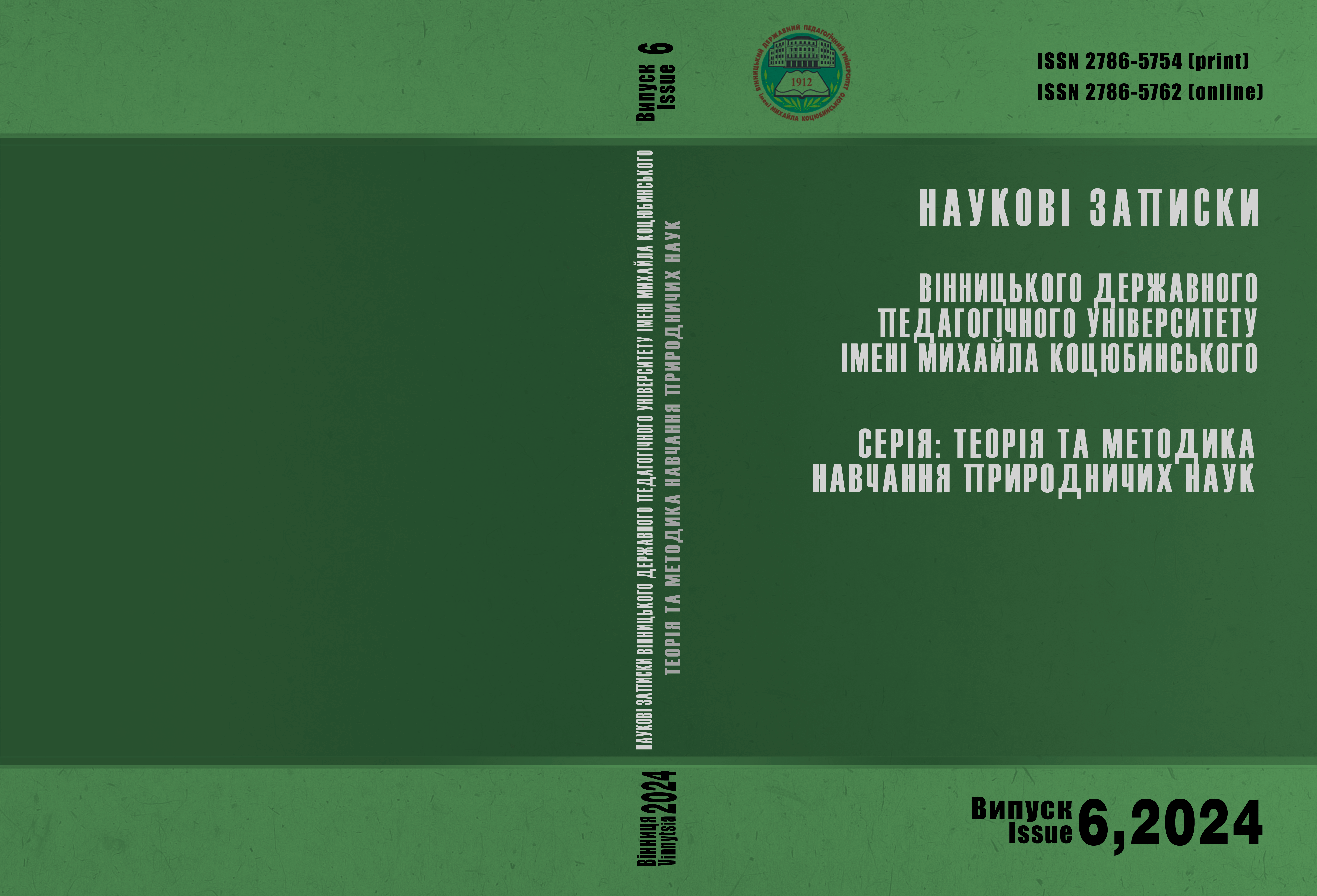Abstract
The article discusses the results of the analysis of approaches to teaching natural science subjects, in particular physics, in Ukrainian schools. It points to the general problem of a decline in students' interest in learning physics and natural sciences. The authors note that abroad, attention is paid to the practical orientation of learning, while in Ukraine, the emphasis is on theoretical reasoning and knowledge of the laws of physics. At the same time, the importance of taking into account the practical application of physics in modern production in new physics programmes is noted. Priority areas and ways of organising physics education are proposed, including humanisation of learning, activity-based approach, level differentiation of students, modular learning and team approach. The paper emphasises the need to combine theoretical and practical physics education to improve the efficiency of the educational process in Ukraine.
The purpose of this article is the theoretical justification and analysis of the main aspects of the development of physics teaching methods in Ukraine.
The following methods were used in the work: historical and theoretical. The historical method is implemented on the basis of the study and selection of factual material regarding the development of methodological thought in physics in Ukraine. The theoretical method was used to develop the described historical-methodical concept as a result of the analysis, generalization and systematization of the collected factual material.
It is found that the study draws attention to the constant evolution and adaptation of physics teaching methods to changes in society, technology and scientific achievements. Attention is drawn to the importance of creating a stimulating and effective learning environment that promotes the development of knowledge, skills and understanding of physical phenomena.
It is noted that the work considers various aspects of physics teaching methodology, namely: the role of technologies in teaching physics and their interaction with teaching methodology and theory are discussed, pointing to the analysis of physical education tasks and advanced pedagogical experience; the need for constant improvement of physics teaching methods is emphasized, noting possible errors and inaccuracies in traditional approaches to studying certain issues; refers to the integration content in the methodology of teaching physics, substantiates the principles of integration of the content of physical and astronomical education at the basic level, and also points out the importance of taking into account modern trends in the development of science; methodological foundations of the development of the content of school physical education are proposed, which take into account modern scientific achievements and pedagogical experience.
The obtained results prove the need for further research and improvement of physics teaching methods in Ukraine. Special attention should be focused on taking into account modern scientific achievements, changes in technologies and accumulation of pedagogical experience.
References
Атаманчук П. С. Інноваційні технології управління навчанням фізики: монографія. Кам’янець-Подільський: Кам’янець-Подільський державний педагогічний університет, інформаційно-видавничий відділ, 1999. 174 с.
Бушок Г. Ф., Колупаєв Б. С. Науково-методичні основи викладання загальної фізики. Рівне: Діва, 1999. 410 с. 3. Головко М. В. Становлення та розвиток теорії і методики навчання фізики в Україні (40-і роки XVII ст. - 30-і роки XX ст.): монографія. Київ: Педагогічна думка, 2020. 480 c.
Гончаренко С. Актуальні проблеми методики фізики. Наукові записки Кіровоградського державного педагогічного університету імені Володимира Винниченка. Кіровоград: РВВ КДПУ імені В. Винниченка, 2010. Вип. 90. С. 76-81.
Заболотний В. Ф. Формування методичної компетентності учителя фізики засобами мультимедіа: монографія. Вінниця: Едельвейс і К, 2009. 454 с.
Іваницький О. І. Сучасні технології навчання фізики в середній школі: монографія. Запоріжжя: Прем`єр, 2001. 256 с.
Мартинюк М. Т. Вивчення фізики і астрономії в основній школі: теоретичні і методичні засади. Київ: ТОВ «Міжнар. фін. агенція», 1998. 274 с.
Методика навчання фізики у старшій школі: Навчальний посібник. / В. Ф. Савченко, М. П. Бойко, М. М. Дідович, В. М. Закалюжний, М. П. Руденко; за ред. В. Ф. Савченка. К.: Видавничий центр «Академія», 2011. 296 с.
Павленко А. І., Головко М. В. Принципи і зміст періодизації історії дидактики фізики в Україні. Збірник наукових праць Кам’янець-Подільського державного університету. Серія педагогічна: Дидактика фізики в контексті орієнтирів болонського процесу. Кам’янець-Подільський, 2005. Вип. 11. С. 60-63.
Садовий М. І., Вовкотруб В.П., Трифонова О.М. Вибрані питання загальної методики навчання фізики: навчальний посібник [для студ. ф.-м. фак. вищ. пед. навч. закл.]. Кіровоград: ПП «Центр оперативної поліграфії «Авангард», 2013. 252 с.
Сосницька Н. Л. Методологічні засади розвитку змісту шкільної фізичної освіти. Педагогічна освіта: Теорія і практика. Психологія. Педагогіка: Збірник наукових праць. 2013. № 19. С. 52-55.
Сусь Б. А., Шут М. І. Проблеми дидактики фізики у вищій школі. Науково-методичне видання – 2-е, виправлене і доповнене. К.: ВЦ «Просвіта», 2003. 155 с.
Школа О. В. Історія зародження, становлення та розвитку наукових шкіл методики навчання фізики в Україні: автореф. дис. … канд. пед. наук: 13.00.02. / Український дер. пед. ун-т ім. М. П. Драгоманова. Київ, 1997. 26 с.

This work is licensed under a Creative Commons Attribution 4.0 International License.
Copyright (c) 2024 Anatolii Silveistr, Mykola Mokliuk

